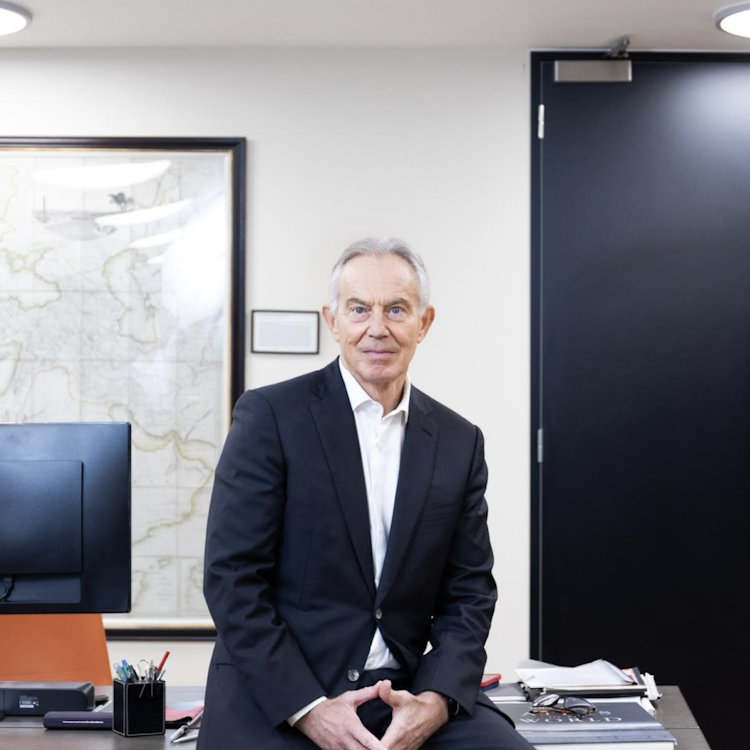Political leaders of yesteryear have a habit of weighing in on whatever issue of the day is making headlines. This week it was the turn of former UK prime minister Tony Blair and former Conservative party leader William Hague, who offered their two cents on how to transform Britain into an AI superpower.
In a new joint report, the pair set out their vision for how the UK can become a global leader in AI innovation and policy making. It includes recommendations like establishing a national lab to research and test safe AI and building publicly owned datasets for AI training.
In an interview with Sifted, Blair says that he and Hague “have spent a long time studying” AI. So what does the former prime minister’s vision for an AI-powered future look like in Britain?
The potential benefits of AI
The report’s opening section imagines a future where “every child has an AI mentor” to help their education. The problem with that though, is that the large language models (LLMs) behind chatbots like ChatGPT have a tendency to “hallucinate” and make up false information.
When asked how to counteract that and make AI mentors safe for children, Blair says: “The truthful answer is that I'm not sure at this stage exactly how this should be handled. The best answer I have is to put the changemakers and the policymakers in a deep conversation together.”
He gives a similar answer when asked about another touted benefit of AI in the report: the ability to empower artists with generative tools.
Artists, creators and publishers are currently suing multiple generative AI companies over the misuse of copyrighted work that’s included in AI training data. Blair’s opinion is that “you've got to have a proper set of copyright protections”.
On whether or not that should be in the form of some kind of licensing arrangement, the former UK prime minister says: “You have to go into it in a really deep way with the people who know what they're doing and what they're talking about.”
Recommendations
Blair is similarly vague about a recommendation in the report to “require generative-AI companies to label the synthetic-media deepfakes they produce” — such as Donald Trump sharing AI-doctored videos of CNN political commentators.
When asked how this could work in practice — given the prevalence of open-source image generation tools and the ease of editing out watermarks with tools like Photoshop (made even easier by Photoshop's new generative AI plug-in) — he says he doesn't know yet.
“I'm not sure of what the answer is at the moment. But I think you'll have to end up with a situation where there's strong sanctions on people who break these rules,” Blair says.
The report also describes how AI could be adopted to improve the delivery of public services, such as for verifying “if a citizen meets the prerequisites for a service based on available data”.
Al is already being used by the UK government to make decisions about public services, such as deciding who should be investigated for welfare fraud, often resulting in marginalised groups being unfairly targeted due to algorithmic bias.
Blair says that, while bias in AI is a risk, it shouldn’t stop further rollout of AI-powered decision-making in the public sector.
“Ultimately, my view is that you've got to go with this because of the enormous benefits, and then investigate and interrogate those areas where you might have inherent bias,” he says.
On the whole, the former prime minister believes that policy-makers need to engage with the entrepreneurs and technologists who are building AI technology, in a bid to design better policies and regulation.
“At the moment, [policy-makers’] appreciation of this is very low. It's growing, but it needs to accelerate fast, because the technology is accelerating fast.”



